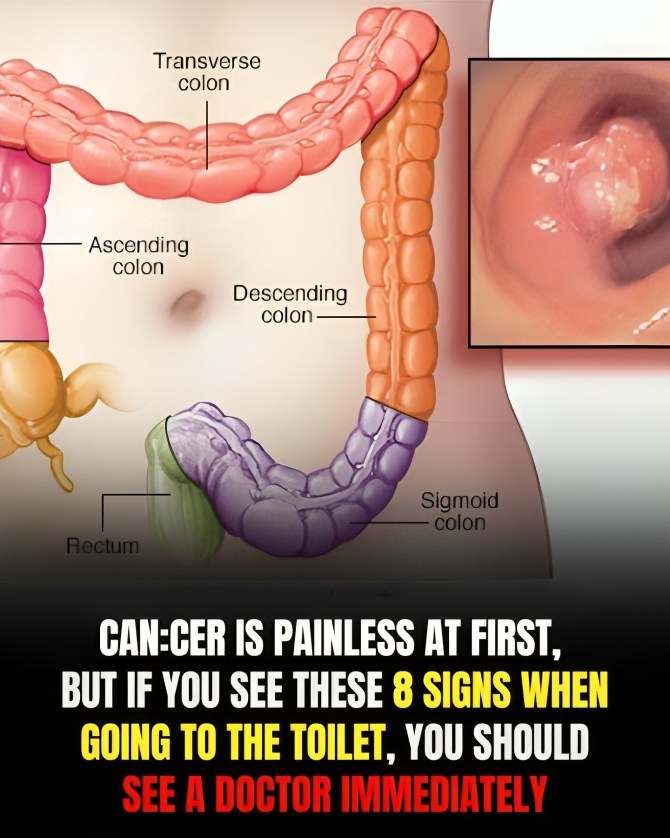


Can:cer often develops quietly, especially in its early stages, when it can be painless and hard to detect. One commonly overlooked warning sign lies in unexpected changes in your bathroom habits.
If you notice any of these eight unusual signs when using the toilet, they could be early indicators of a serious condition, including can:cer. Spotting these signs early can be life-saving.
1. Blood in Stool or Urine
Seeing blood where it doesn’t belong is a serious warning, potentially signaling can:cers such as colorectal, kidney, or bladder can:cer.
Watch for:
Bright red or very dark stool (a sign of internal bleeding).
Pink, red, or tea-colored urine without an apparent cause.
Blood that comes and goes but never fully disappears.
Why it’s important:
Even a one-time occurrence should be reported to a doctor immediately.
2. Ongoing Diarrhea or Constipation
Changes in your regular bowel routine that persist for weeks may point to colorectal can:cer.
Watch for:
Diarrhea that doesn’t improve despite dietary adjustments.
Long-term constipation or difficulty with bowel movements.
Constant feeling that your bowels aren’t fully emptied.
Why it’s important:
A tumor may interfere with bowel function, altering your habits.
3. Sudden, Unexplained Weight Loss
Losing weight unexpectedly and without trying is often a sign of can:cer in the digestive system.
Watch for:
Dropping more than 10 pounds without changes to your routine.
Feeling full quickly or losing your appetite.
Noticeable loss of strength or muscle tone.
Why it’s important:
Can:cer can speed up metabolism and suppress appetite, leading to rapid weight loss.
4. Abdominal Discomfort and Bloating
Frequent, unexplained stomach pain or bloating could indicate can:cer in the stomach, ovaries, or pancreas.
Watch for:
Bloating that doesn’t go away over time.
Unusual cramps or pain in the abdomen.
Discomfort after eating that lingers.
Why it’s important:
Ongoing bloating or abdominal pain that persists for weeks should be evaluated by a doctor.